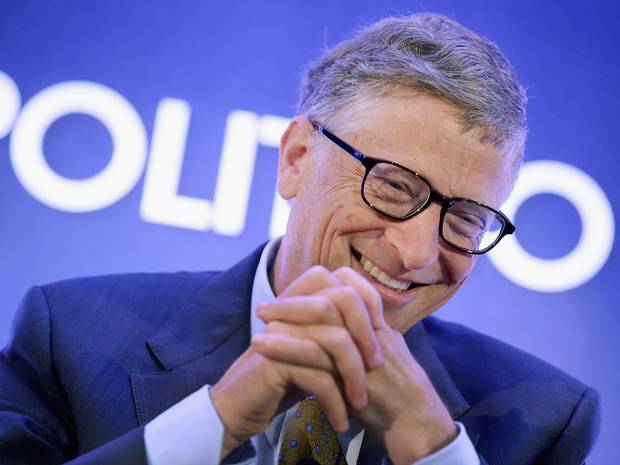Bill Gates has unveiled his summer reading list, explaining what makes him tick when he's sur la plage.
It's a bit light on the fiction front, but what did you expect? Writing on his blog, Gates does concede that: "Some of the books I’ve recommended as summer reads really aren’t. They’re long nonfiction books that might look a little out of place beside the pool or on the beach."
Gates is a voracious self-improver, previously saying that he feels "pretty stupid" not being able to speak a foreign language. Probably had quite a lot to be getting on with setting up Microsoft and running his humanitarian foundation.
While he doesn't include any Jilly Cooper, the inclusion of comics, Richard Dawkins' young adult offering and moral questions about meat there's something that'll probably appeal to most people on the list.
Allie Brosh, Hyperbole and a Half
"I get why Brosh has become so popular. While she self-deprecatingly depicts herself in words and art as an odd outsider, we can all relate to her struggles. Rather than laughing at her, you laugh with her. It is no hyperbole to say I love her approach - looking, listening, and describing with the observational skills of a scientist, the creativity of an artist, and the wit of a comedian."
Elua Biss, On Immunity
"When I stumbled across this book on the Internet, I thought it might be a worthwhile read. I had no idea what a pleasure reading it would be. Biss, an essayist and university lecturer, examines what lies behind people’s fears of vaccinating their children."
Randall Munroe, What If?
"The subtitle of the book is 'Serious Scientific Answers to Absurd Hypothetical Questions,' and that’s exactly what it is. People write Munroe with questions that range over all fields of science: physics, chemistry, biology. Questions like, 'From what height would you need to drop a steak for it to be cooked when it hit the ground?' The answer, it turns out, is 'high enough that it would disintegrate before it hit the ground.'"
Vaclav Smil, Should We Eat Meat?
"The richer the world gets, the more meat it eats. And the more meat it eats, the bigger the threat to the planet. How do we square this circle? Vaclav Smil takes his usual clear-eyed view of the whole landscape, from meat’s role in human evolution to hard questions about animal cruelty."
Richard Dawkins, The Magic of Reality
"I’ve read many of his books over the years, including The Selfish Gene and The Blind Watchmaker. His antagonistic (and, to me, overzealous) view of religion has earned him a lot of angry critics, but I consider him to be one of the great scientific writer/explainers of all time...
"It’s too bad that some people may not read this book because of Dawkins’s strong views on religion. Even if Dawkins’s tone here is less contentious than usual, I fear this won’t get too far beyond the choir (to use a metaphor Dawkins might not appreciate)."
Randall Munroe, XKCD
"A collection of posts from Munroe’s blog XKCD, which is made up of cartoons he draws making fun of things - mostly scientists and computers, but lots of other things too."
Darrell Huff, How to Lie With Statistics
"I picked up this short, easy-to-read book after seeing it on a Wall Street Journal list of good books for investors...
"One chapter shows you how visuals can be used to exaggerate trends and give distorted comparisons—a timely reminder, given how often infographics show up in your Facebook and Twitter feeds these days. A useful introduction to the use of statistics, and a helpful refresher for anyone who is already well versed in it."
(independent.co.uk)
www.ann.az
Follow us !











